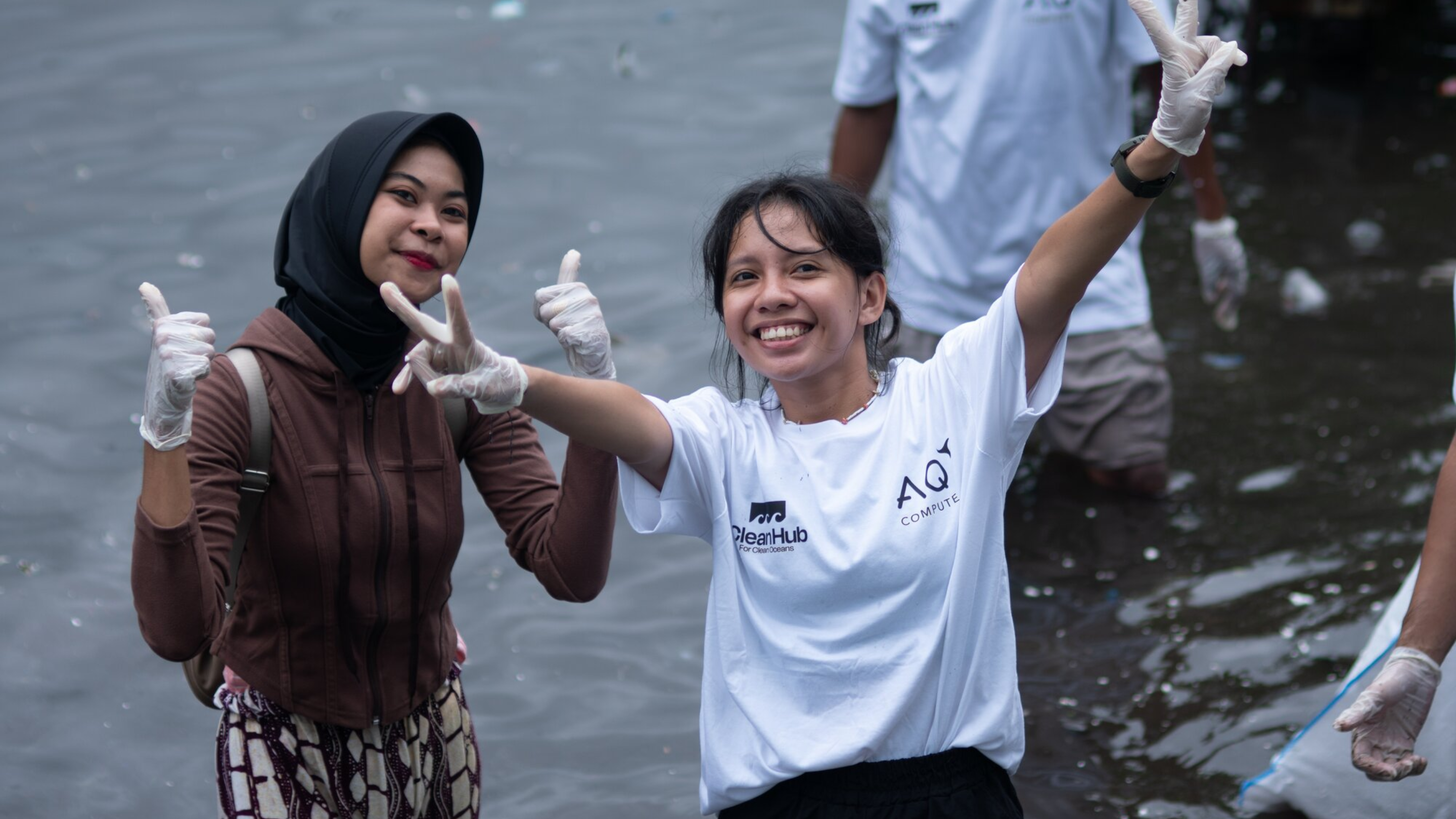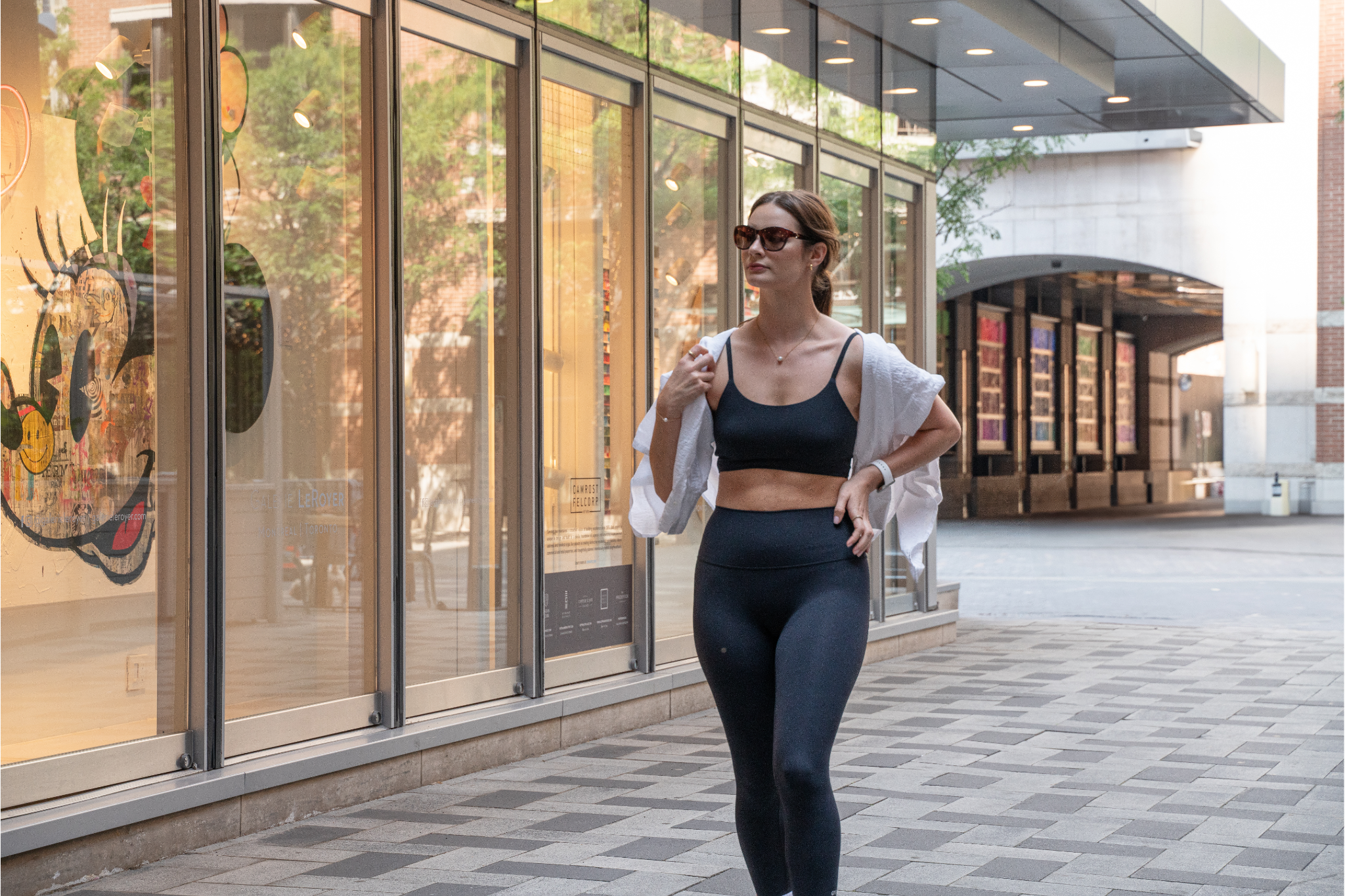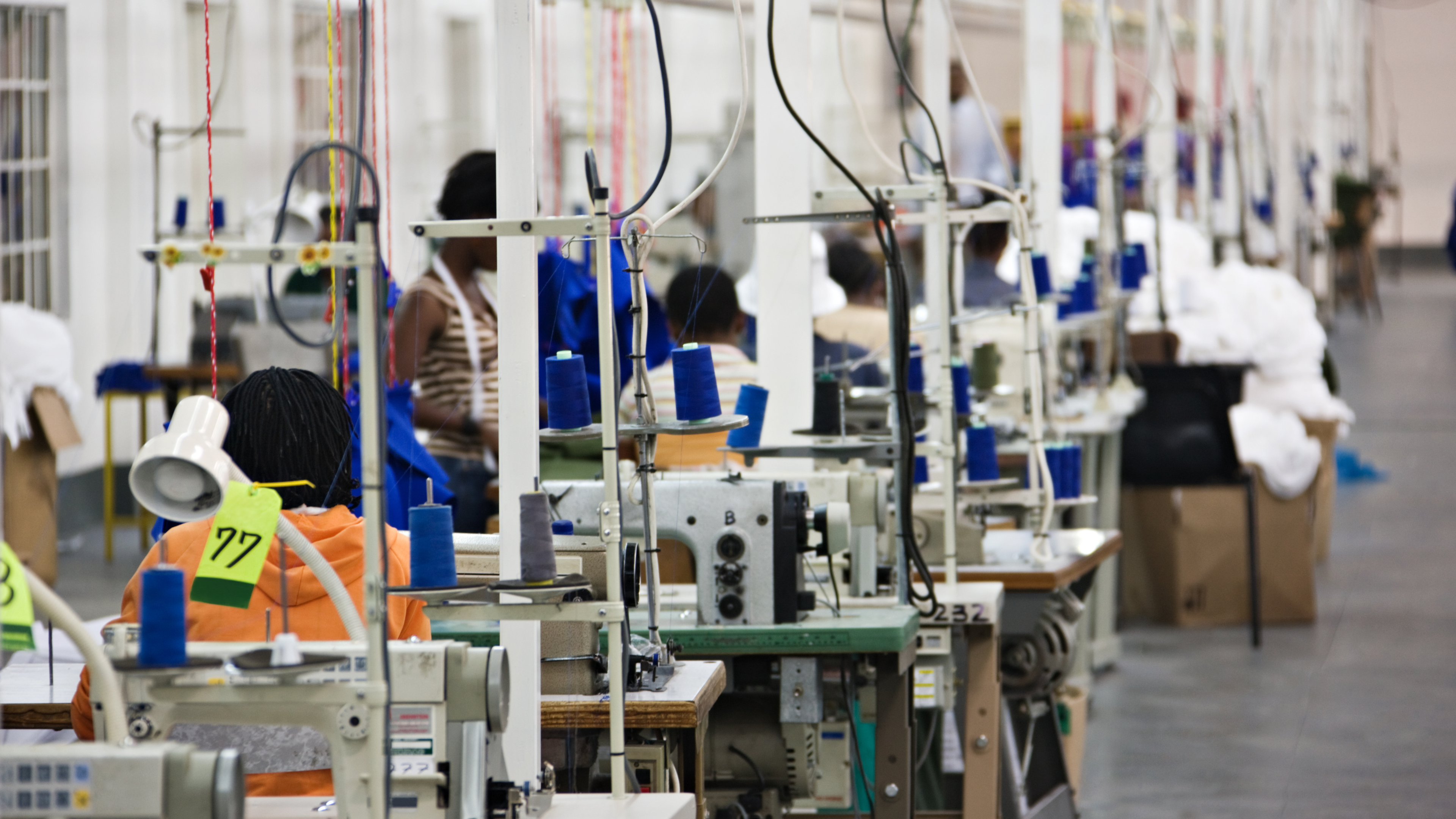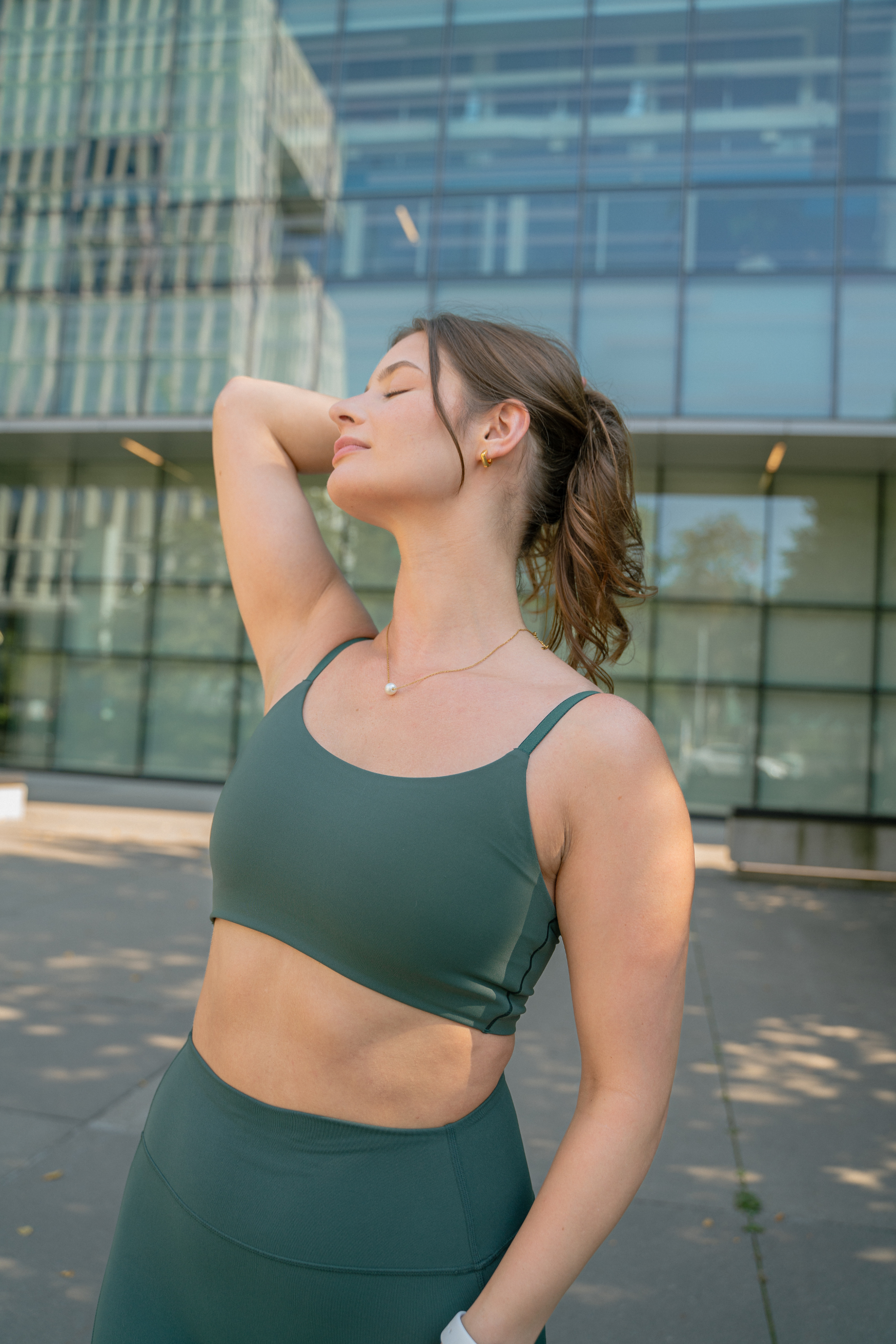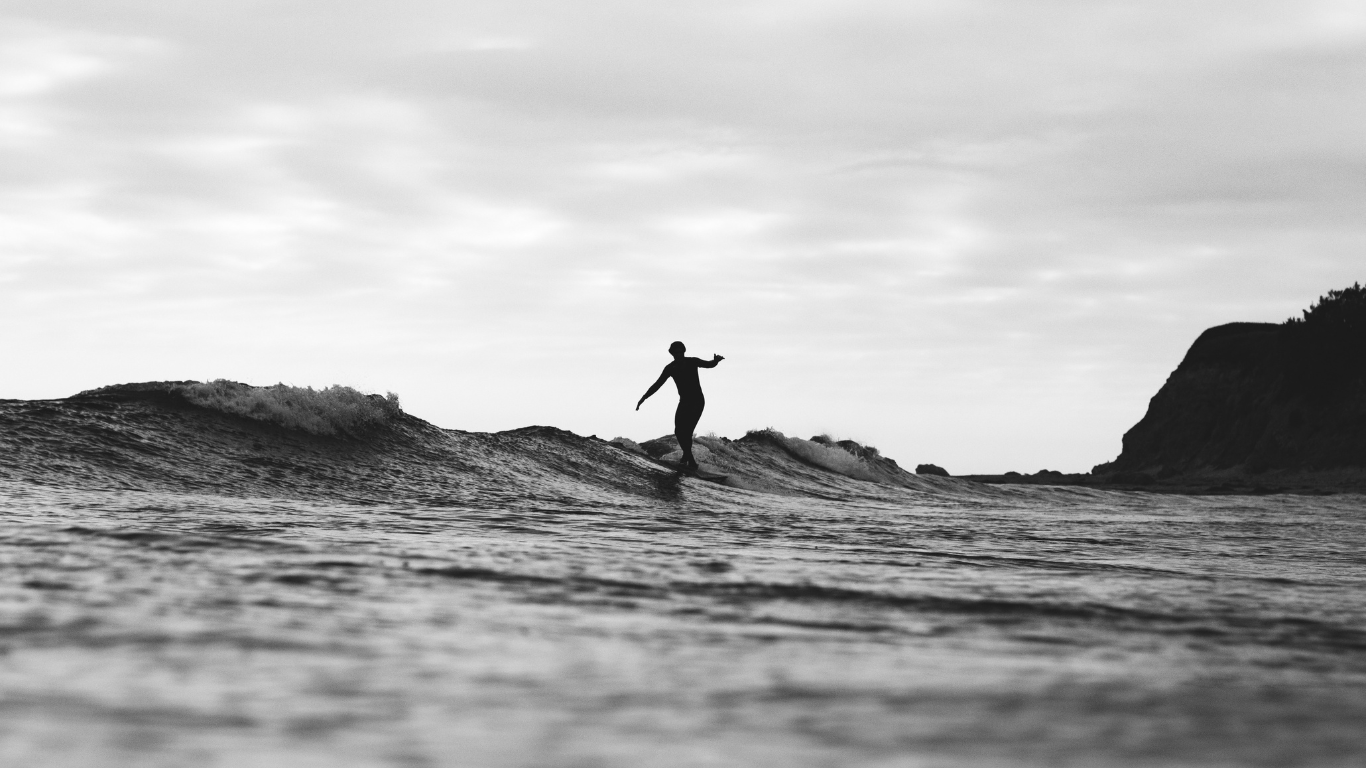
It all started with our fabrics
Repurposing fishing nets and plastic bottles.
Orso was created on a mission to reduce waste in the fashion industry and utilize existing plastic waste to create the most comfortable and durable clothes available.
When looking into which raw materials we should use, our eyes immediately turned to marine plastic. After learning that lost and discarded fishing gear accounts for at least 10% of total ocean plastic waste, we knew it was time to turn that trash into treasure.
We aspire to build a brand that is socially accountable and trusted, ensuring that every piece of clothing you wear has a net positive impact on the environment and makes you feel good inside and out.
From the Ocean to Your Wardrobe

Every year, 640,000 tons of fishing gear gets left behind and litters our oceans, threatening the lives of billions of marine animals and the well-being of all human beings.
Producing a single pair of leggings requires on average 750 liters of water. By making clothing from nylon that already exists —such as discarded fishing nets, we save up to 70% of both water and carbon emissions.
We believe that every step of the journey— from the moment we design the product to the moment it reaches you—must be carried out transparently and with care for the environment.
We invite you to join us on this journey that begins in the ocean.
The Journey of Discarded Fishing Nets
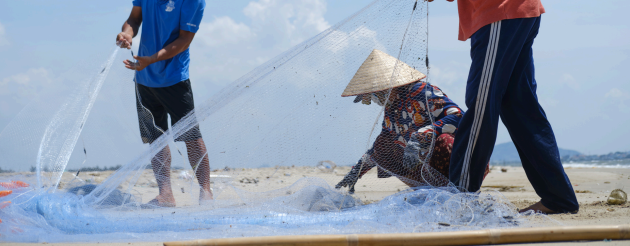
STEP 1: COLLECTION
Discarded fishing nets are first collected in coastal communities in Vietnam, India and Indonesia. By repurposing discarded fishing nets, we actively help restore our ecosystems and significantly reduce ocean pollution. The less abandoned fishing gear in the ocean, the more animals can swim freely
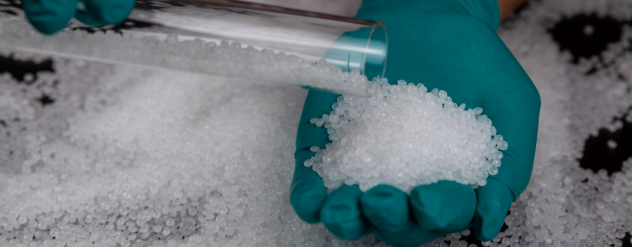
STEP 2: REGENERATION
The collected fishing nets are then cleaned, deconstructed, and turned into 100% recycled nylon pellets. Recycling the nylon allows us to reduce our water usage by up to 90% when compared to regular nylon. This process produces up to 58% less carbon emissions as well.
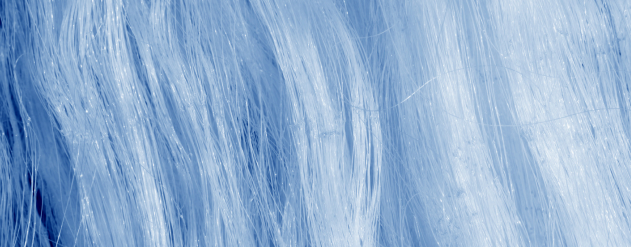
STEP 3: EXTRUSION
Recycled nylon pellets are extruded and spun into nylon threads. These fibers are not only just as good as the ones made from raw nylon, they are stronger, softer and more flexible than polyester. This way, you can choose sustainability without sacrificing on performance.
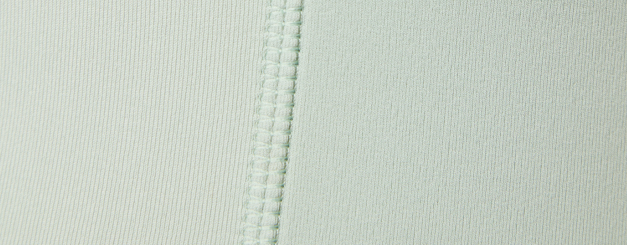
STEP 4: WEAVING
The nylon threads are then woven into the durable fabrics thatmake up our clothing. Our ultra-soft and lightweight SeaButter™fabric provides the ultimate comfortable fit while our thicker andmore compressive SeaStorm™ fabric supports you through highimpact activities.

HARMONIOUSLY CRAFTED
All of our products are manufactured in WRAP-certified factories in Vietnam. This means every worker has access to a safe and healthy workplace respectful of local laws and regulations, as well as internationally recognized standards. Thus, our facilities abide by all of WRAP’s 12 principles, such as the prohibition of child labor, harassment, abuse, and discrimination.
CONSCIOUS UPCYCLING
Our clothing is crafted from recycled nylon sourced from old fishing nets. The Global Recycled Standard verifies the content of our recycled materials, as well as good social, environmental, and chemical production practices. What this means for you is that by purchasing from Orso, you are choosing fabrics that reduce harm to humans and nature, from the moment the materials are recycled to when you purchase our final products.
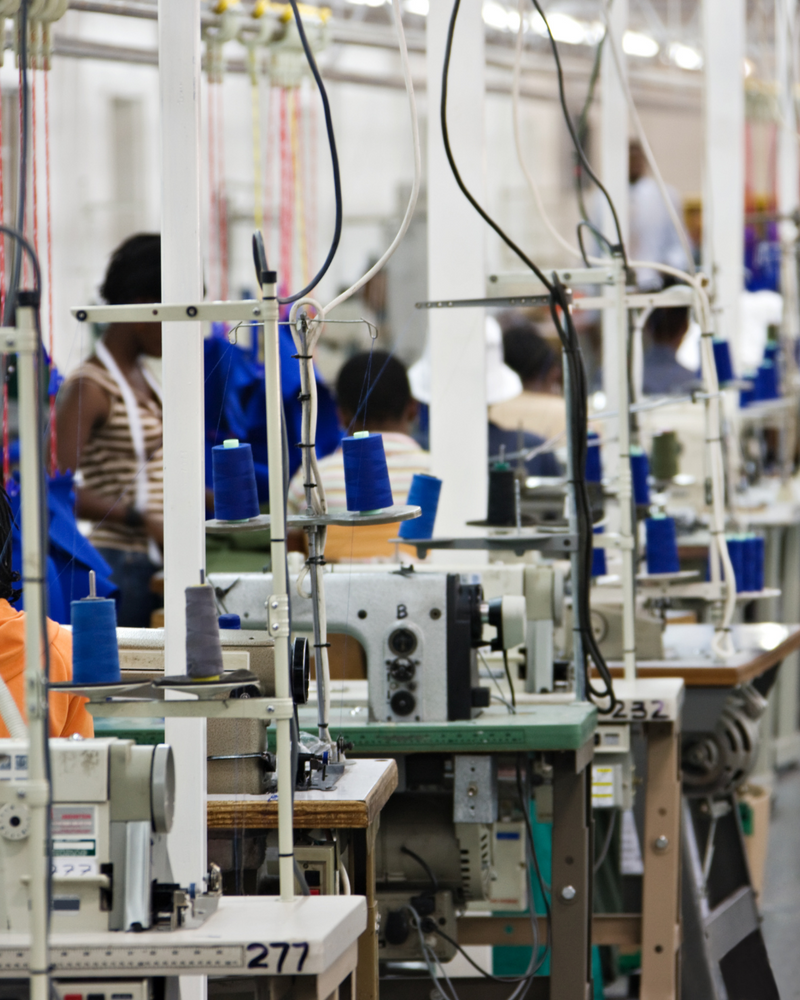
WELLNESS TEXTILES
All our textile partners adhere to the OEKO-TEX STANDARD 100. This certification tests every thread of our fabric to ensure it is free from substances harmful to humans and animals. Rest assured, you can wear our clothing from morning to night without worrying about your health
VAST HORIZON
Orso is a proud partner of CleanHub, whose technology monitors plastic waste from collection to recycling. This ensures full transparency as we share our progress in the combat against ocean pollution all over the world. We want to express our gratitude for the amazing work they accomplish and your role in making this partnership possible.
Giving back to the Ocean
The ocean should be a refuge; a powerful source of life, strength, and comfort. But our overuse of plastic has made it a death trap. Coastal communities around the world are facing the brunt of it: plastics washing ashore, littering their living space, and poisoning the fish the eat. Women like Geethu are taking matters into their own hands to make their communities safer and the world healthier for the generations to come.
At Orso, we are grateful for these women and glad to be able to support their work. Waste collection tackles the problem directly by preventing plastics from reaching and polluting our waterways.
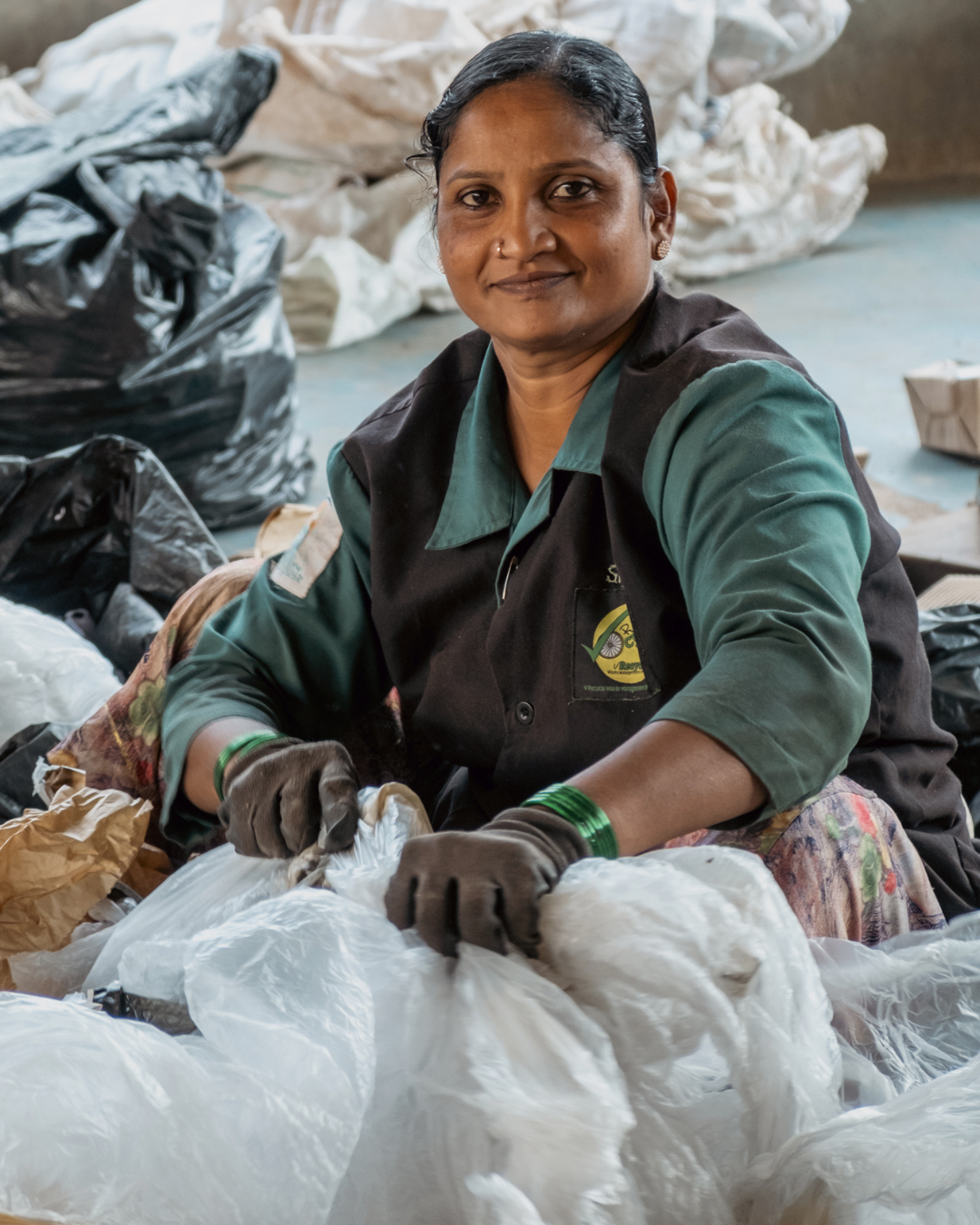
Keeping Plastics Out of the Ocean
Plastics that float on the ocean's surface or deep in its waters are the most harmful. Sea turtles and and other marine animals often mistake bags for jelly fish and ingest them. Many get caught by ghost fishing gear and end up stuck or choked. All humans are also affected by ocean plastic through the food chain and the release of chemicals into the water as plastics take up to thousands of years to decompose. We aim to collect more than 26,000 pounds of ocean waste by the end of 2026, which is the equivalent of 562,648 plastic bottles.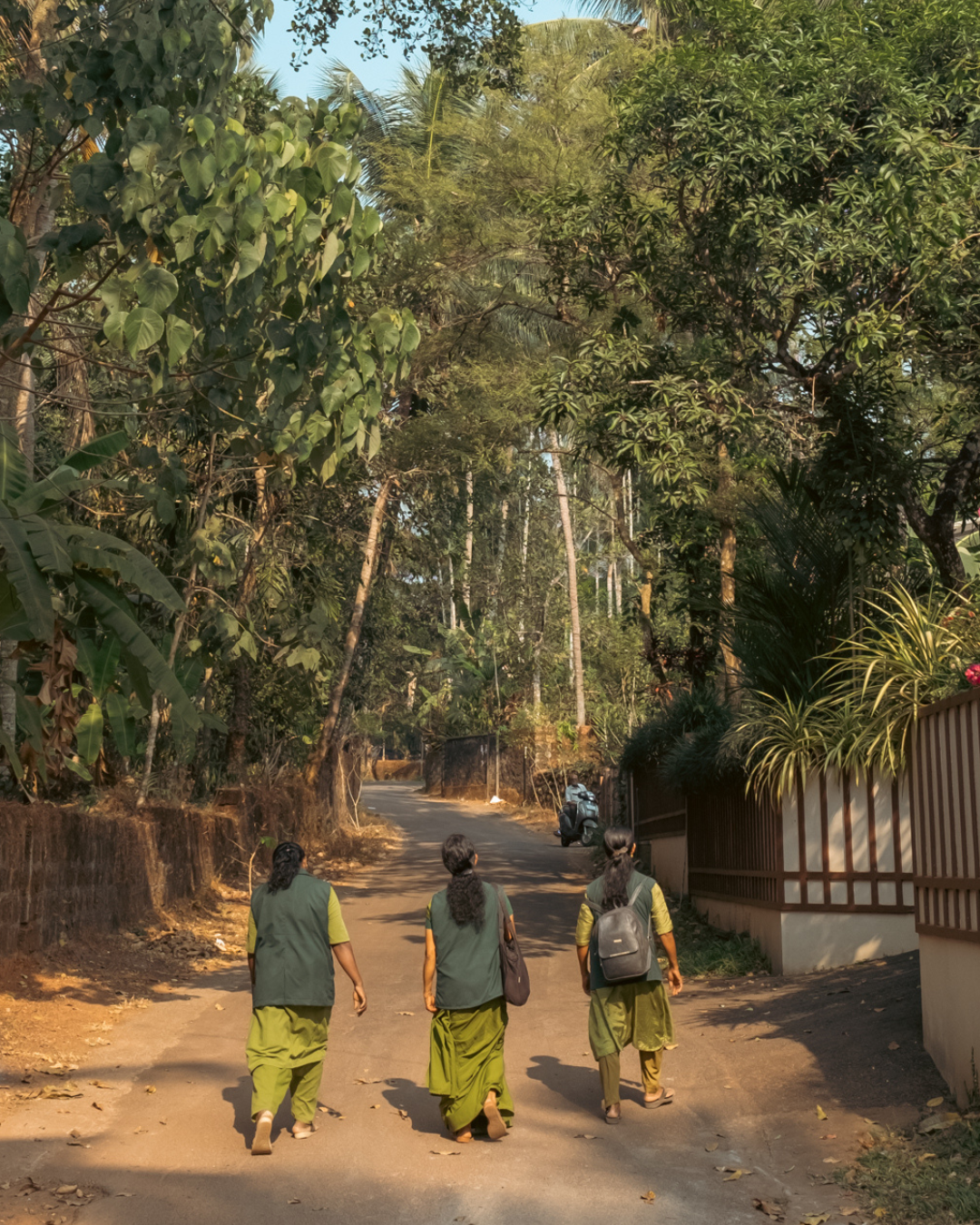
Community for a Better Future
Waste collection organizations create jobs to support women around the world. These waste collectors and community leaders take on a vital role in their community and connect hundreds of homes to waste management systems, improving the lives of elders and children as well. This helps strengthen not only women's independence, but also the root of their worth.